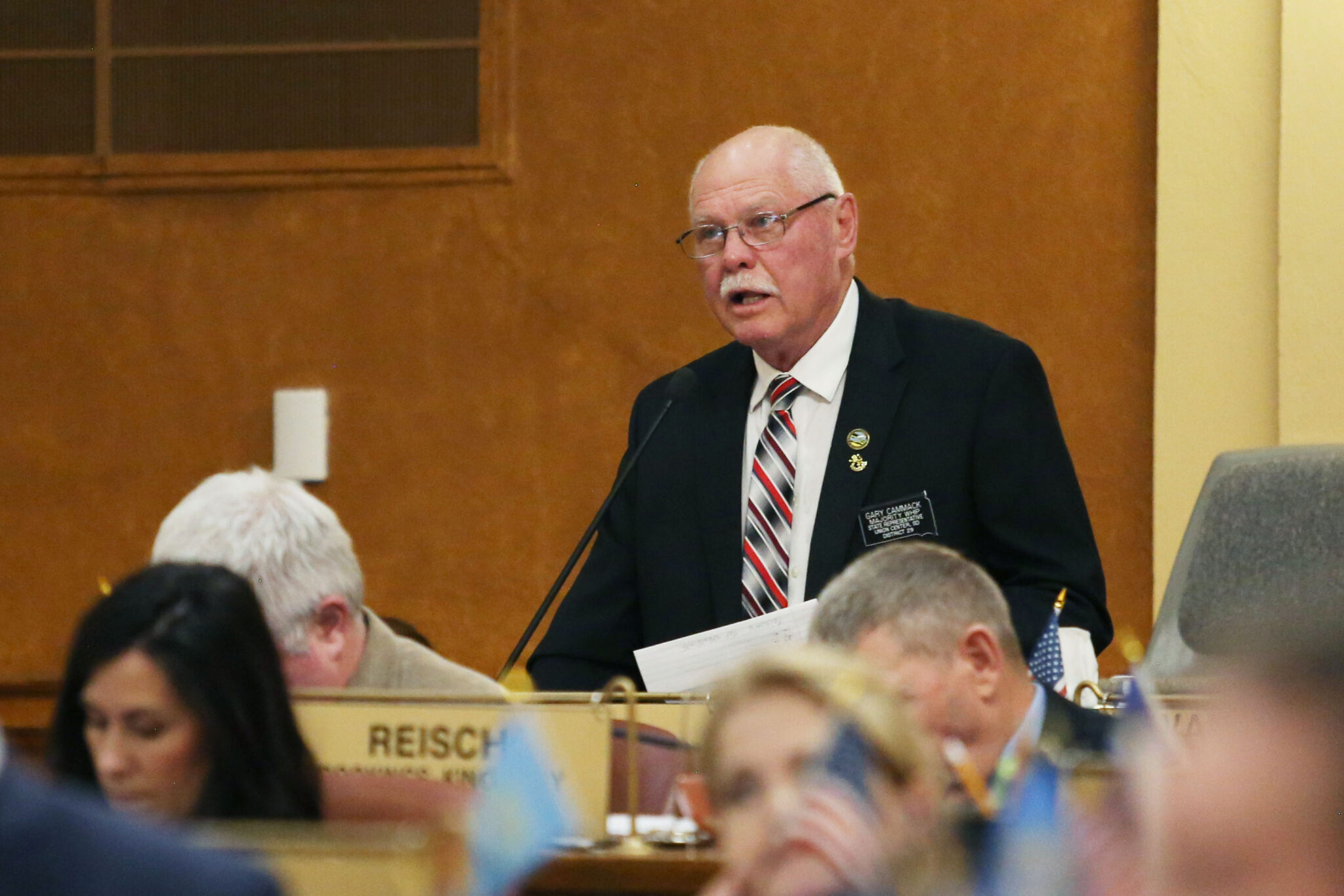
Black Hawk, South Dakota — a 137-year-old community with a population of over 3,000 — isn’t actually a city.
The community has its own ZIP code, post office, water company, fire department, cemetery, businesses, churches and an elementary school that’s part of the Rapid City Area Schools system.
But it doesn’t have a city government, making it one of the largest unincorporated communities in the state.
Rep. Gary Cammack, R-Union Center, introduced a bill intended to make it easier for communities like Black Hawk in “high growth” areas to incorporate.
According to current law, if a community is within 3 miles of an incorporated municipality, residents first have to petition that municipality to become annexed. If that annexation fails, then the community can continue its incorporation process.
Black Hawk is situated on Interstate 90 just outside of Rapid City and immediately adjacent to Summerset, a municipality of just under 3,000 that was incorporated in 2005.
Under current law, Black Hawk has to petition both communities, and it’s a struggle to convince community members to even sign the petition, said Katie Sieverding, a lobbyist with Dakota Cable Solutions in Black Hawk. Residents want to be officially recognized by the state, not potentially subjected to being swallowed by a neighboring community.
Cammack’s bill would provide an exception to the required annexation requests if the neighboring community has less than 5,000 residents. That would mean Black Hawk would still have to petition Rapid City but not Summerset.
Opponents of the bill, including officials from Summerset and David Reis, executive director of the South Dakota Municipal League, said the bill takes away engagement and communication needed between neighboring jurisdictions.
None of the bill opponents are against Black Hawk incorporating, said Melanie Torno, mayor of Summerset.
“Amending this law takes away the opportunity for Summerset to be part of this discussion and takes away our voice,” Torno said. “In small communities it’s important that collaboration and discussion with neighboring communities occur for the possible regionalization of infrastructure and to grow in a responsible manner.”
Black Hawk residents tried to become a city in the mid-1970s, but the effort never reached the ballot box. The community tried again in 1987 and in 2005, both passing through the petition process but failing the public vote by narrow margins.
This latest push to become incorporated is not just about local control and how taxes are used, but about identity and protecting the community as its own, Black Hawk resident and landowner Jesse Lewis told lawmakers at the Capitol. Lewis has been working to incorporate Black Hawk since the first effort in the ’70s.
According to news coverage in 2005, when both Summerset and Black Hawk were working toward incorporation, residents in both communities worried about the other becoming incorporated first and annexing the other community.
Summerset’s expansion plans created by former administrations included pieces of Black Hawk, Mayor Torno told lawmakers Tuesday.
“It’s a race to do it first and then that second town is left to do the impossible,” Sieverding said.
Lisa Schieffer, city administrator for Summerset, spoke in opposition to the bill but also provided context for incorporation efforts in the area. The former Meade County auditor oversaw incorporation processes for Summerset, Black Hawk, Piedmont and Buffalo Chip in her 28-year career. Summerset and Piedmont were successful, while Buffalo Chip’s incorporation was ruled unlawful and void in 2020 by the state Supreme Court.
“What is the solution?” Schieffer testified. “I believe it’s already spelled out in law. Two entities coming to the table by way of petition, territories coming before city commission boards to visit about cooperative boundaries to promote good relations.”
The bill will head to the House floor next.
